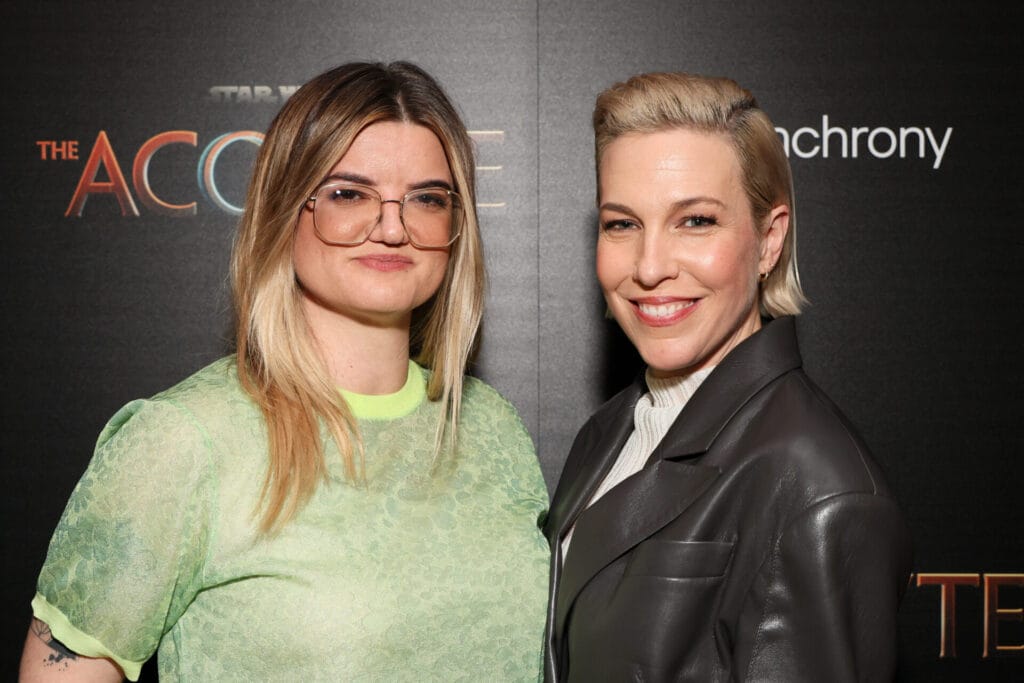Cult of Love is a bookend to Leslye Headland‘s series of plays based on the seven deadly sins.
Headland’s deadly sins series started with her lust play Cinephilia. From there, she created Bachelorette which explored gluttony and would adapted into Headland’s feature film debut. Rounding out the cycle of plays were Assistance (greed), Surfer Girl (sloth), Reverb (wrath), and, of course, Cult of Love.
With pride as its jumping off point for the Trip Cullman-directed Cult of Love, Headland introduces us to the Dahl family during the holidays. We see how the four adult Dahl children unpack their grudges and issues in the presence of a super-Christian, not-so-queer-friendly mother and a father who navigating Alzheimer’s. It makes for the perfect mess of family dysfunction.
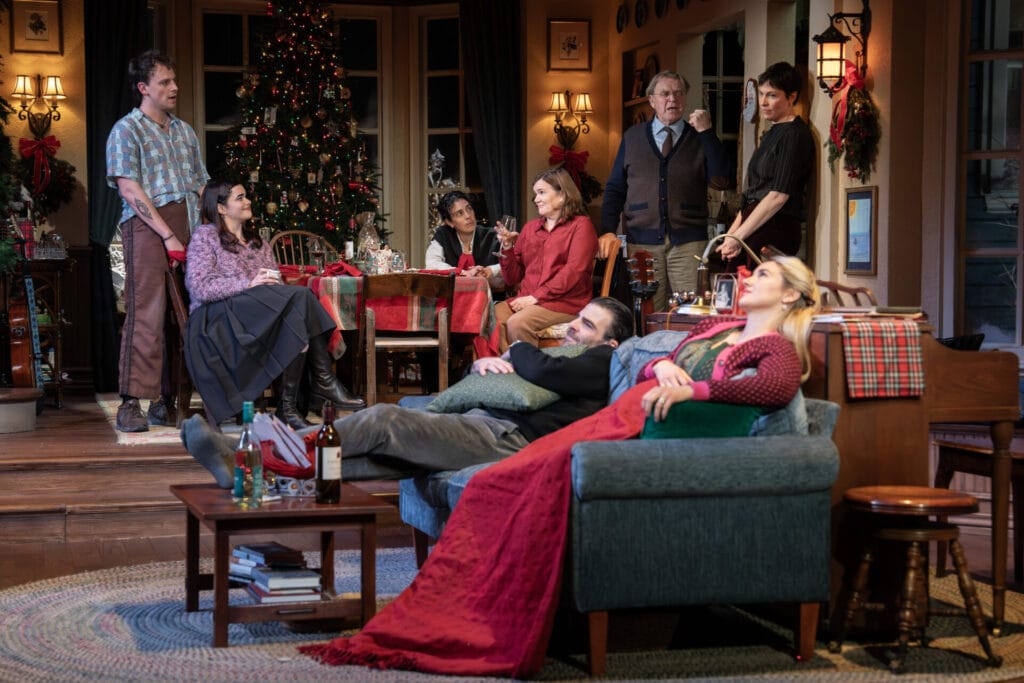
Headland went from the fantastical world of Star Wars with The Acolyte and the time/genre-bending series Russian Doll to a more personal narrative. The play took the stage at he Helen Hayes Theater with Zachary Quinto, Shailene Woodley, Mare Winningham, Barbie Ferreira, and Rebecca Henderson, Headland’s real-life partner.
With nearly 10 years of marriage under their belts, Headland and Henderson collaborate with each other as creative muses. They have worked together on the aforementioned Russian Doll and The Acolyte, but with Cult of Love, it brings their collaboration to new heights as a film adaptation is in the works.
Read our interview with Headland and Henderson below.
Having been with the Cult of Love since its inception, how did you navigate being vulnerable with this personal story?
LESLYE HEADLAND: In 2018, when the show was produced at the IAMA Theatre Company, I was writing hypothetical scenarios based on my familial experiences. Then the play’s plot points started to actually happen in my life. It confirmed my interpretation of my family was correct. Life imitated art.
For Rebecca, since it is such a personal story for Leslye, how did you balance telling a story that is personal for her while adding your own stamp on the narrative?
REBECCA HENDERSON: I didn’t feel I needed to add anything. Evie is the character who most closely resembles Leslye and I definitely didn’t want to do an impression of her. I tried to stay truthful in my performance with what was on the page. It was a heart-opening experience and made me love and respect my wife even more.
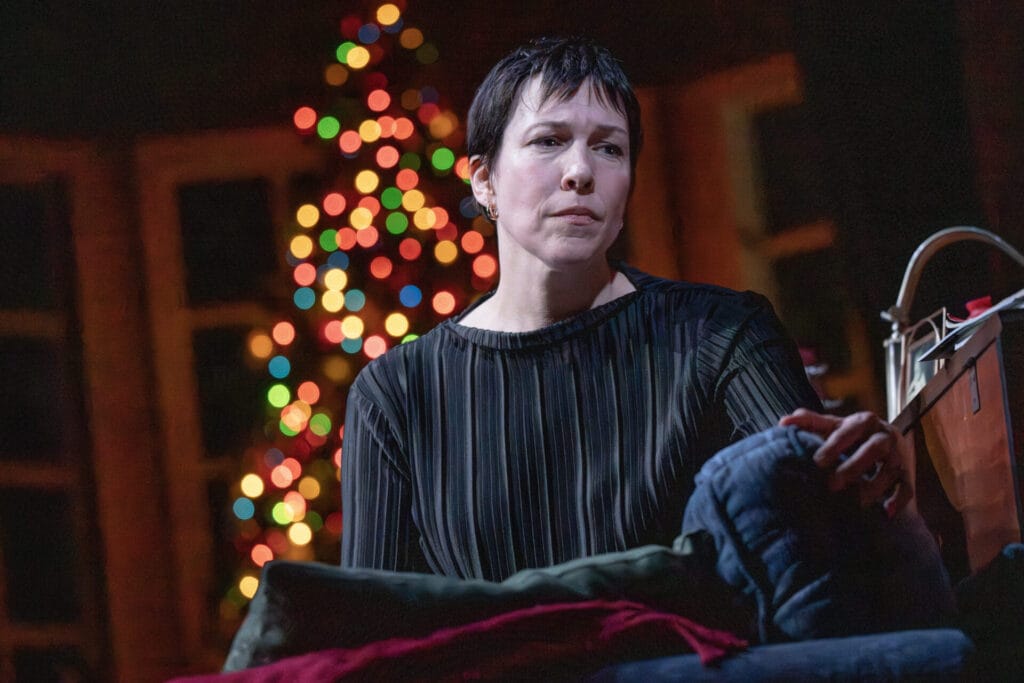
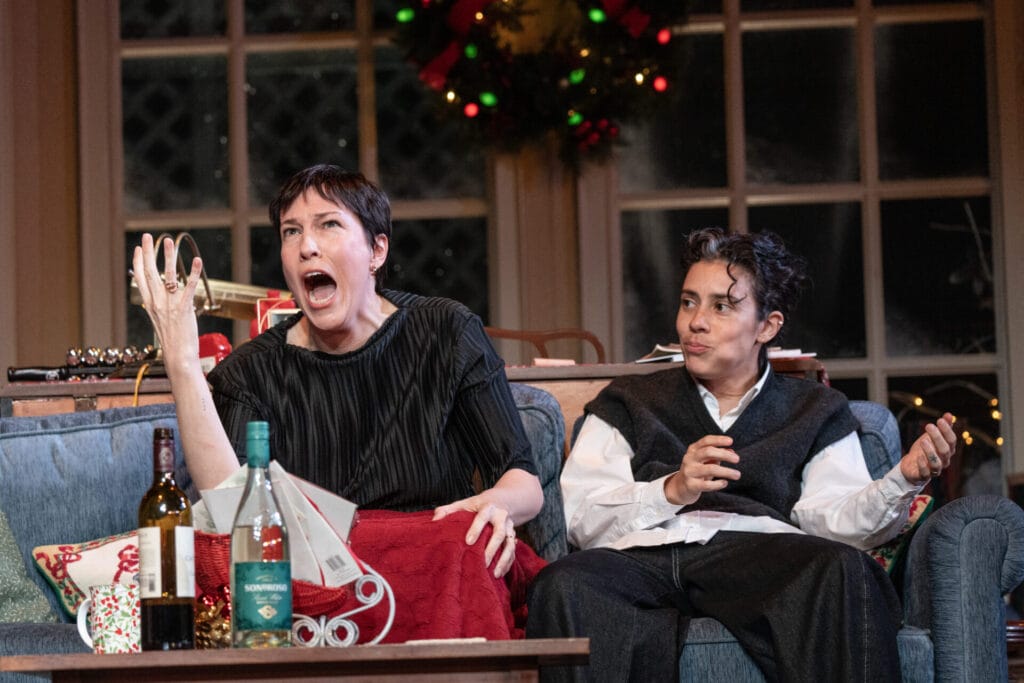
From its debut in 2018 to the Berkeley Rep to now, the Cult of Love has been on a journey. How has it been like to see the play bloom and evolve in the socio-political climate of 2025?
LH: I started this when Trump was elected to his first term. It premiered on Broadway weeks after he was elected to a second term. Over those eight years, the division in our country and families has become acutely clear. The catharsis of the play is more intense now because the audience is more raw.
Leslye, Cult of Love is the final installment of a series of plays based on Dante’s seven deadly seasons. How does “pride” play a part in the story of the Dahl family?
LH: With each play I want to explore several different interpretations of the WORD. So the family is a pride of lions, competing for dominance. There is gay pride and the lack of it. The “sin” is the characters’ judgement of each other. Plus the audience’s judgment of them. There is no “bad guy” in this play. There are ten characters who are confident they are the “good guy”.
Rebecca, what is something unexpected you learned about yourself while playing Evie?
RH: I can sing! I learned I can sing. In four-part harmony. In front of people! Also, playing Evie reinforced my belief that the family you create must be prioritized over your family of origin.
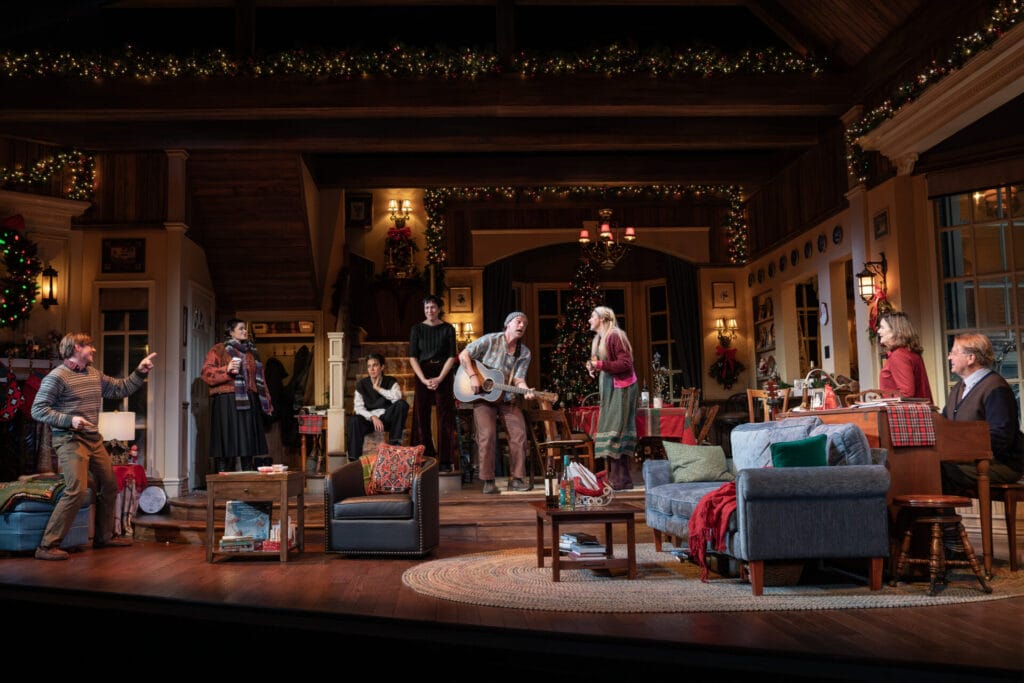
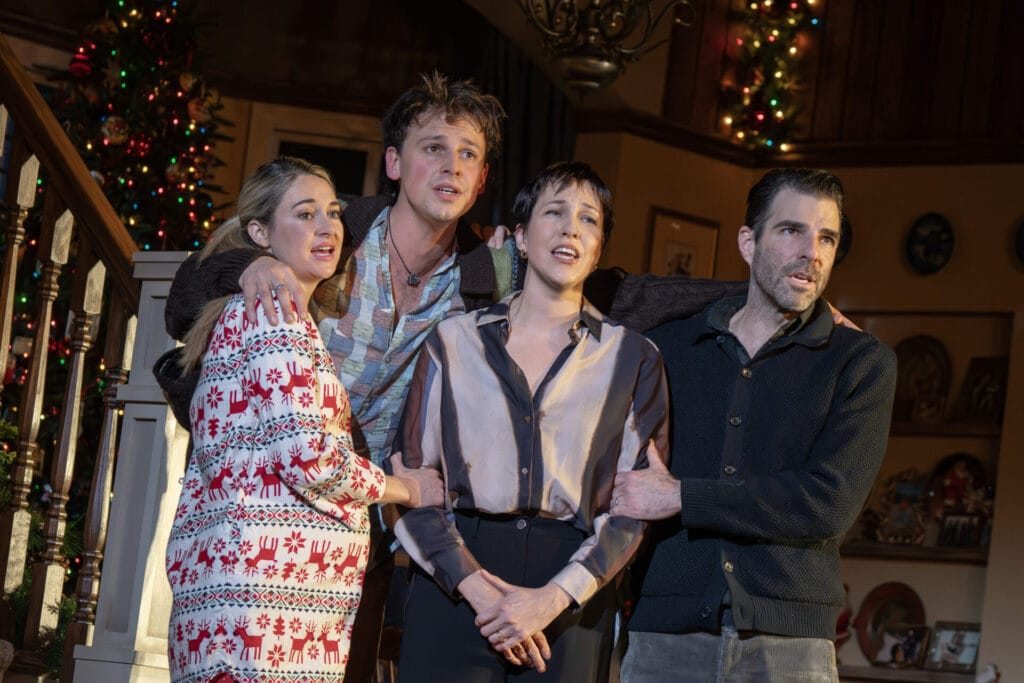
What have been some memorable reactions from audiences?
LH: One person came up to me after a performance and said: “That is my family too. But instead of music it was cocaine.”
RH: I loved hearing the audience reaction to Evie and her wife returning to the house in the final act. Sometimes people would clap, often times they would gasp, and I heard from some afterwards that in their head they were screaming, “NO! RUN!”
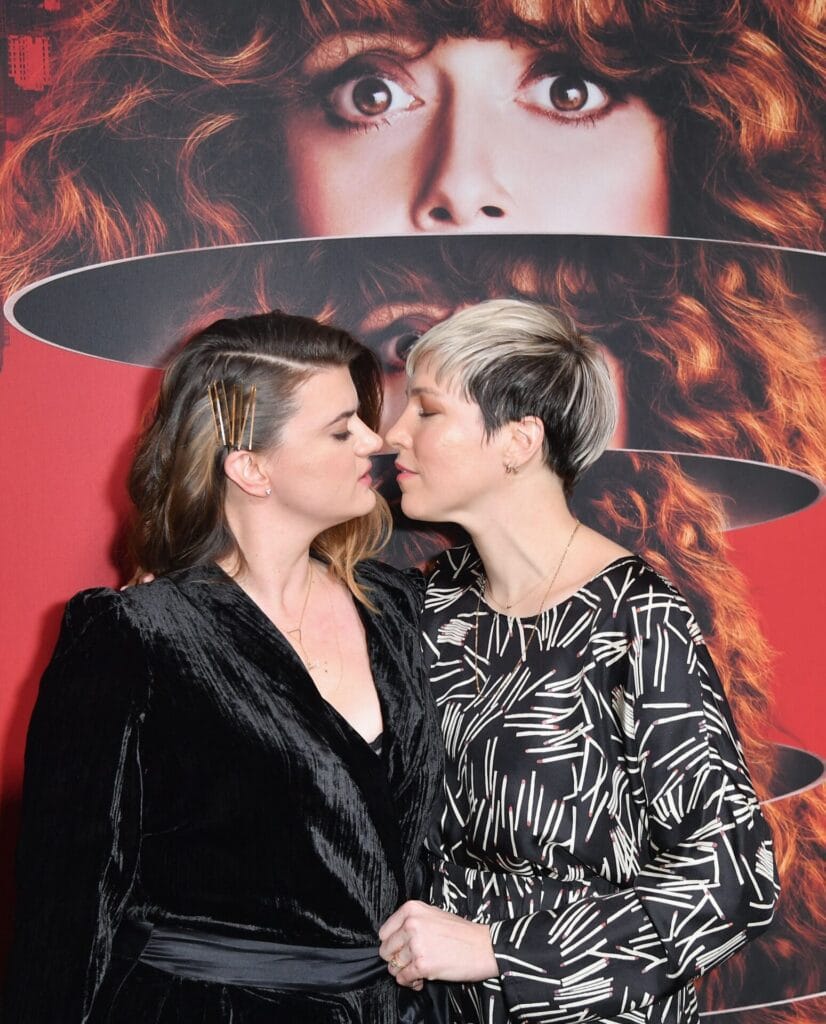
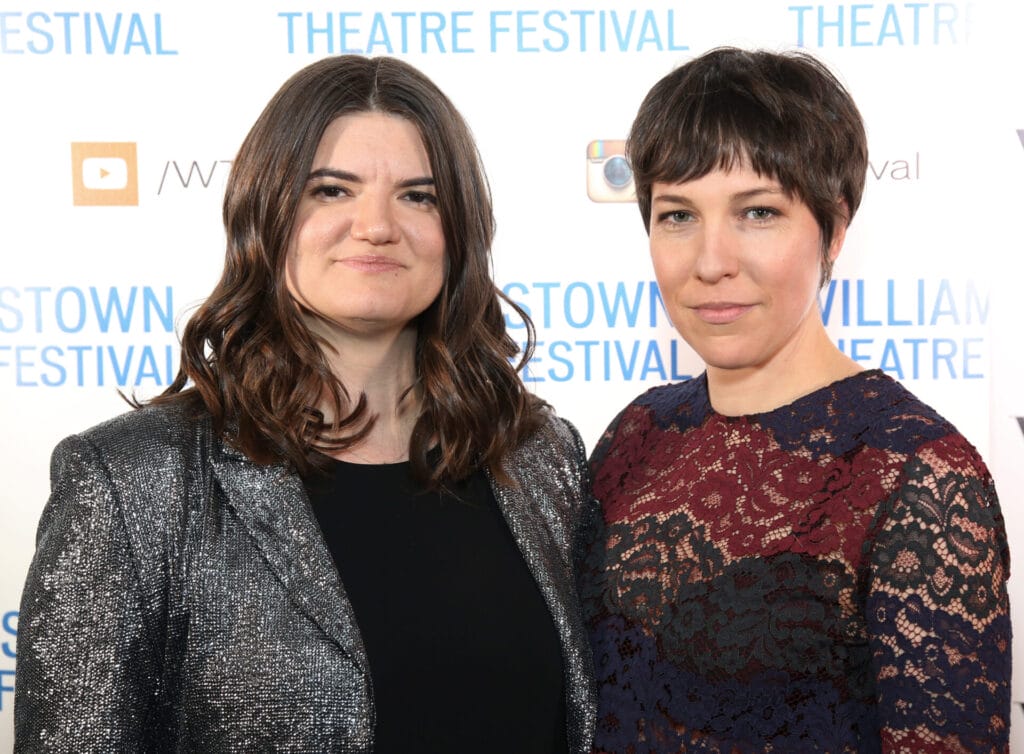
There’s been news of a film adaptation of Cult of Love. What are you most excited about translating for the screen?
LH: I’m excited by the challenge. I’ve adapted my work to other mediums before. It’s interesting to reinvent the story. I want the spirit of the play but a clear roadmap for the camera. The plot changes but characters always remain.
What would it have been like for you to see a play like Cult of Love when you were younger?
LH: Scary. I wouldn’t’ve been able to process it or apply it to my life yet. I would’ve loved the music though!
RH: I definitely would’ve wanted to be in it!
Why do you think a play like Cult of Love and art driven by LGBTQ voices are important?
LH: As a queer person, speaking from personal experience is powerful. Some of the dialogue is cut and pasted from my life. It’s satisfying to see an audience’s reaction to homophobia in real time. It isn’t hate comments online. This is the abuse of queer people right in front of you. It’s unignorable.

